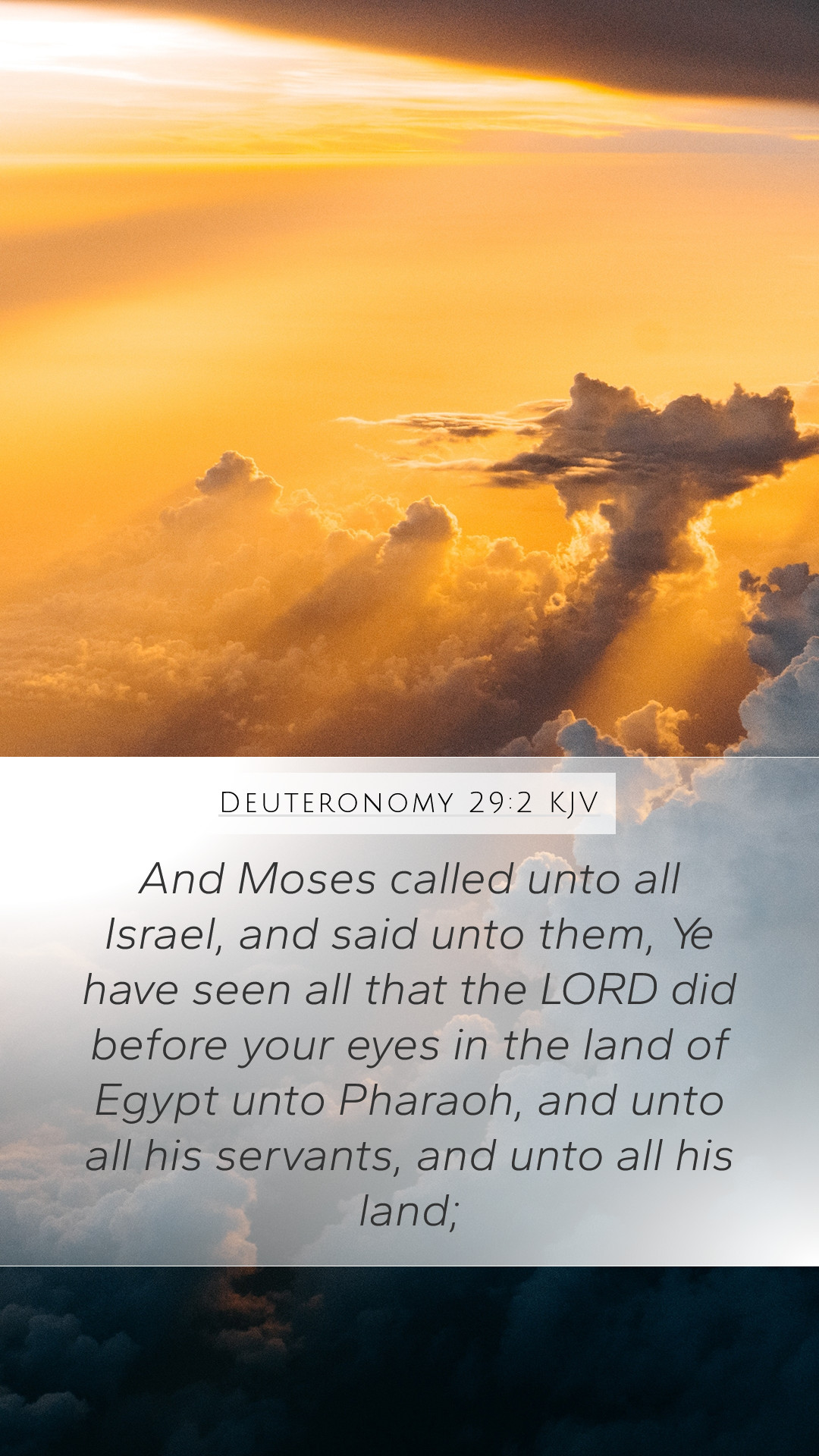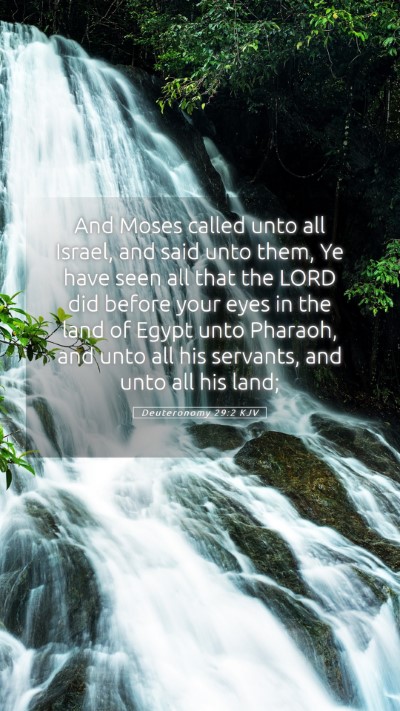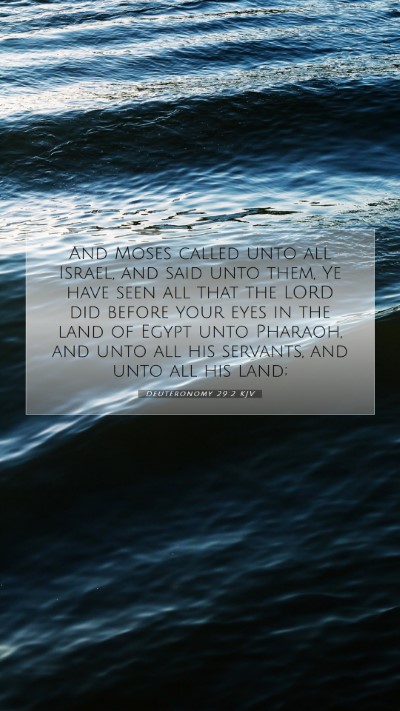Understanding Deuteronomy 29:2 - A Comprehensive Commentary
Deuteronomy 29:2 is a significant verse in the Old Testament, encapsulating key themes of covenant renewal and the importance of remembering God's works. The verse states:
"And Moses called unto all Israel, and said unto them, Ye have seen all the Lord did unto Egypt unto Pharaoh, and unto all his servants, and unto all his land."
This verse serves as a reminder of the miraculous acts that God performed in Egypt, aimed at solidifying the Israelites' faith as they prepared to enter the Promised Land.
Verse Breakdown and Interpretation
The interpretation of this verse can be understood through various lenses provided by respected biblical commentaries.
Moses' Address to Israel
In this setting, Moses is addressing the Israelites just before they enter Canaan. Matthew Henry notes that this call to attention serves a dual purpose: to recall their past experiences and to prepare them spiritually for their future as God's chosen people.
Historical Context
Albert Barnes emphasizes the historical context, reminding us that the audience comprises those who witnessed God's deliverance firsthand. They had seen plagues, miracles, and the wonders of the Exodus event, signifying God's power and faithfulness.
God's Sovereignty
Adam Clarke highlights that this recollection serves to affirm God's sovereignty over Egypt and their own lives. Acknowledging what God has done is vital in establishing trust and dependence on Him as they face new challenges.
Key Themes in Deuteronomy 29:2
- The Importance of Remembrance: Remembering God's past actions reinforces faith.
- Preparation for the Future: This moment is crucial as they approach a new chapter in their journey.
- Covenant Renewal: The repetition of God's deeds serves as a renewal of covenant faithfulness.
- Collective Experience: Moses addresses the community, emphasizing that they all have witnessed God's glory together.
Application in Biblical Exegesis
Understanding Deuteronomy 29:2 goes beyond mere acknowledgment of past events; it invites readers to engage in a deeper analysis of how these historical moments shape our contemporary faith journey. Through scripture analysis, we learn how applying biblical teachings can transform our daily lives.
Cross References
Deuteronomy 29:2 is intricately related to other scripture passages that explore similar themes. Here are a few cross-references that enrich the understanding of this verse:
- Exodus 10:1-2: Relates the actual plagues in Egypt and God's directive to Moses.
- Psalms 78:10-11: Reminds the people of Israel's failures to remember God's deeds.
- Joshua 23:3: Joshua recalls God's faithfulness to Israel as they enter the Promised Land.
Conclusion: The Path Forward
As you reflect on Deuteronomy 29:2, consider how the lessons from the past can guide your present and future. Engage with this text through online Bible study or group discussions to delve deeper into its meanings. Use various Bible study tools and commentaries to enrich your Bible study insights, leading to a more profound understanding of scripture.
Remember, grasping the meaning of Bible verses like Deuteronomy 29:2 not only enhances personal faith but also fosters a collective understanding within Bible study groups. Explore how these powerful narratives can be applied to contemporary life and become an integral part of your journey of faith.


